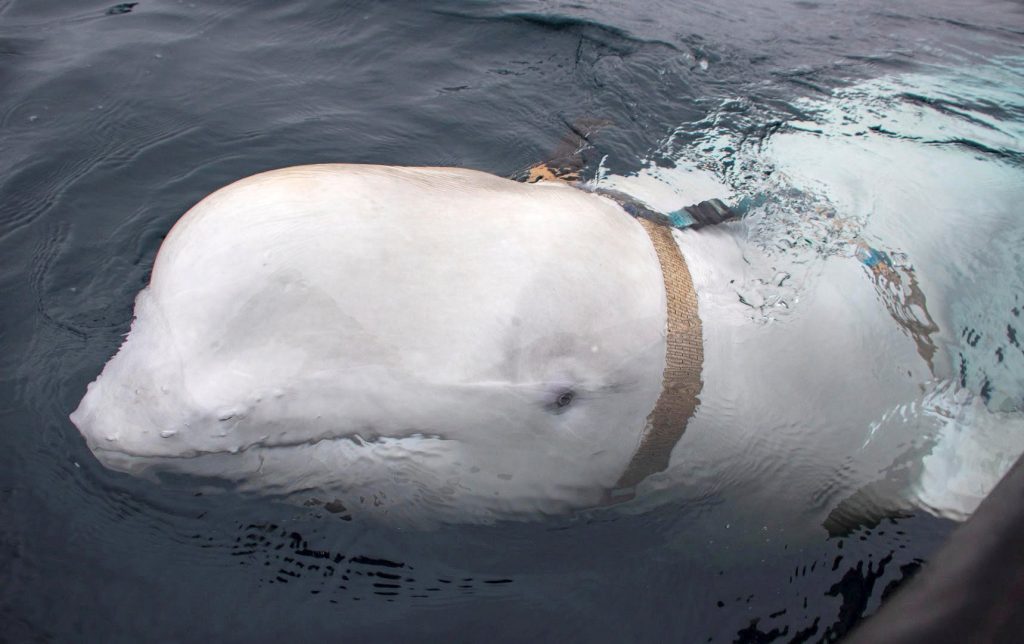The beluga rose to fame in 2019 after being spotted at sea wearing a harness with mounts for a camera, sparking suspicions the animal may have been trained by Russia’s military.
Animal rights groups said gunfire killed a beluga whale that rose to fame in Norway after its unusual harness sparked suspicions the creature had been trained by Russia as a spy.
The organisations NOAH and OneWhale said they had filed a complaint with Norwegian police asking them to open a criminal investigation in the death of the animal.
The beluga, nicknamed Hvaldimir, rose to fame in 2019 after being seen at sea wearing a specially-fitted harness with mounts for a camera, prompting concerns that the animal may have been trained by the Russian military to gather intelligence.
A celebrity in Norway, Hvaldimir was found dead on Saturday in a bay on the country’s southwestern coast. His body was transported to a local branch of the Norwegian Veterinary Institute on Monday for an autopsy. A report on Hvaldimir’s death is expected “within three weeks”, a spokeswoman for the institute said.
NOAH and OneWhale have called for a criminal investigation to be launched “based on compelling evidence that the whale was killed by gunshot wounds”.
In an Instagram post on Wednesday, OneWhale – whose mission “is to protect one whale, Hvaldimir, so that we can protect many” – said that “several veterinarians, biologists, and ballistics experts have reviewed [the] evidence of Hvaldimir’s injuries, determining that the whale’s death was the result of a criminal act”.
“The injuries on the whale are alarming and of a nature that cannot rule out a criminal act – it is shocking,” NOAH Director Siri Martinsen said in a statement. “Given the suspicion of a criminal act, it is crucial that the police are involved quickly,” she said.
Police confirmed they had received a complaint regarding the death of Hvaldimir and said they would look into the matter “to determine whether there are reasonable motives to launch an investigation”.
Norway’s Veterinary Institute told the AFP news agency that “if something suspicious were to come up” under the autopsy, “police would be informed”.
With an estimated age of 15 to 20, Hvaldimir was relatively young for a beluga whale, which typically live 30 to 35 years, according to the World Wildlife Fund (WWF).
In 2019, the hypothesis of Hvaldimir being a “spy whale” was fuelled by his discovery in the strategic location of the Barents Sea, a hotbed of East-West rivalry during the Cold War.
Moscow’s most powerful navy fleet is based in the Barents Sea, and Russia and the West continue to track the movements of each other’s submarines in the region.

